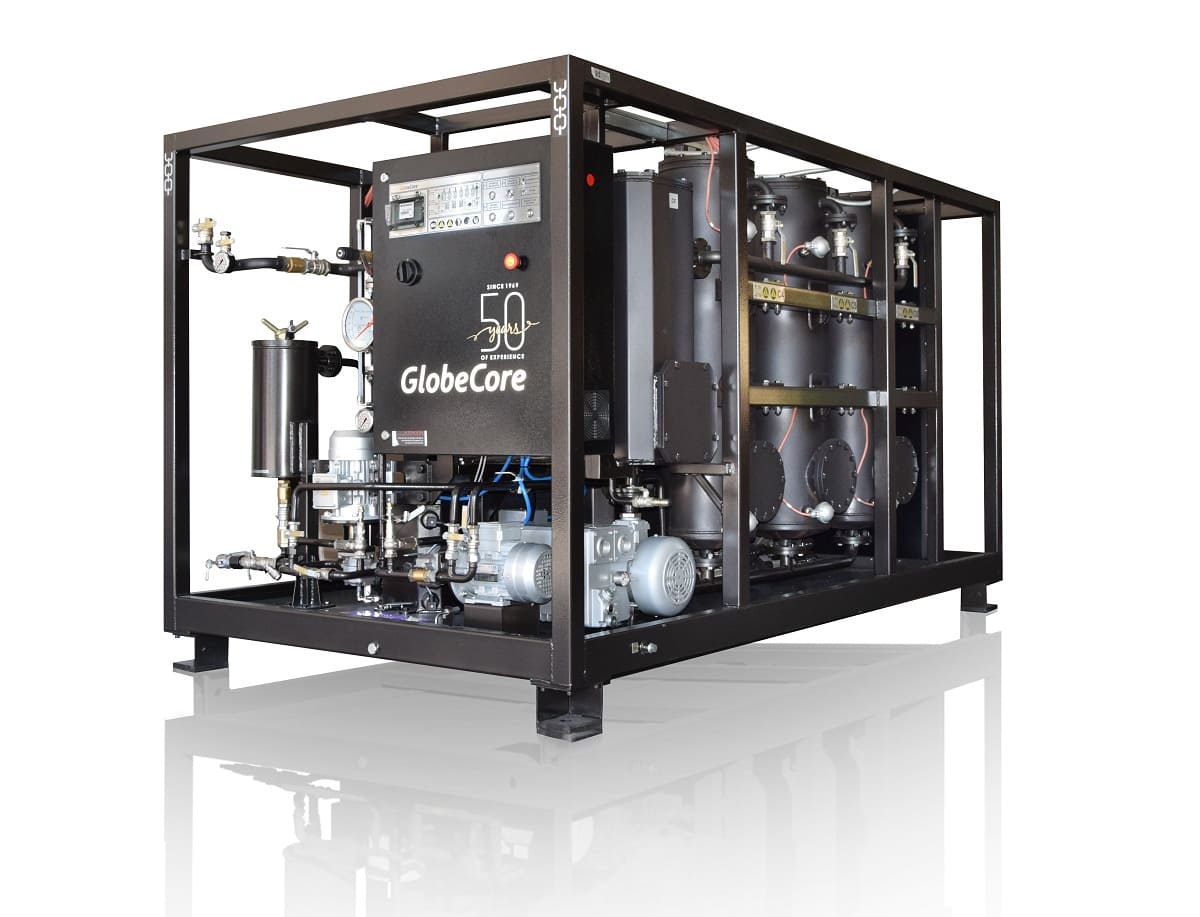Just How Regenerated Transformer Oil Prolongs Transformer Life-span
The function of transformer oil is vital in guaranteeing the integrity and durability of transformers, functioning as both an insulator and coolant. Regrowed transformer oil supplies an engaging remedy to enhance these features by properly eliminating hazardous contaminations that compromise performance. Through a meticulous regrowth procedure, the oil's dielectric buildings and thermal security can be brought back, causing significant renovations in operational effectiveness. Understanding the details of this procedure and its broader effects for transformer upkeep discloses a path to not just prolong life-span however likewise optimize prices in power administration systems.
Value of Transformer Oil
Transformer oil plays a critical role in the efficient procedure of electric transformers. It mainly acts as an insulating tool, ensuring and stopping electric discharges that elements run securely under high voltage conditions. The oil's dielectric properties are fundamental to maintaining the stability of the transformer, as they reduce the risk of failings that can cause disastrous occurrences or expensive downtimes.
In addition to its protecting capacities, transformer oil additionally works as a coolant. As transformers run, they create heat that needs to be dissipated to avoid getting too hot and succeeding damages. The oil circulates within the transformer, soaking up and transferring warmth far from important components, consequently preserving ideal operating temperature levels.
In addition, transformer oil serves as an obstacle versus moisture and contaminants, which can endanger the performance and durability of the transformer. Its chemical residential or commercial properties help in reducing the effects of acids and various other byproducts that might create gradually, adding to the overall health of the electrical system.
Benefits of Regenerated Oil

Furthermore, regenerated transformer oil has a reduced degree of pollutants, including fragments and impurities that can deteriorate performance. This pureness not only improves the oil's thermal conductivity but also extends the functional lifespan of transformers by minimizing overheating risks. The improved thermal security of restored oil ensures consistent efficiency also under high operating temperature levels, which is important for maintaining transformer performance.
An additional advantage is its ecological impact. Restored oil advertises sustainability by minimizing waste and the demand for brand-new oil manufacturing, thus lowering the carbon impact related to transformer maintenance. Transformer Oil Regeneration Plant. The durability of regrowed oil translates to lower upkeep prices over time, as fewer oil modifications and less constant equipment downtime are required.
Process of Oil Regrowth
The regrowth of transformer oil includes a methodical process created to recover the oil's original homes and improve its efficiency. This procedure generally begins with the elimination of the made use of oil from the transformer, which is after that based on different purification strategies.
The primary step in the regeneration procedure is the filtration, where solid impurities such as sludge, steel, and dirt bits are eliminated. This is usually adhered to by vacuum cleaner distillation, which aids to remove dampness and unpredictable substances, thus boosting the oil's dielectric strength.

Effect on Transformer Performance
Recovering the homes of regenerated transformer oil dramatically influences the general efficiency of transformers. Improved dielectric toughness is just one of the most essential benefits, as it permits for better insulation and lowers the possibility of electrical break down. This enhancement leads to a more steady operation under high voltage conditions, ultimately causing enhanced performance.
In addition, the removal of pollutants and destruction products throughout the regeneration process reduces the threat of overheating. Cleanser oil promotes far better heat dissipation, which is vital for preserving optimum operating temperatures. Consequently, the thermal performance of the transformer is improved, allowing for greater lots without compromising dependability.
Additionally, the chemical security of restored oil makes certain long term operational life. It withstands oxidation and degradation, lowering the regularity of upkeep treatments and oil replacement. This security not check these guys out only adds to improved efficiency yet likewise lines up with sustainability objectives by minimizing waste.
Future of Transformer Upkeep
As innovations in technology remain to reshape the landscape of electrical engineering, the future of transformer upkeep is poised for considerable change. The assimilation important site of wise innovations, such as IoT sensors and anticipating analytics, makes it possible for real-time tracking of transformer health and wellness, enhancing the capacity to preemptively address issues before they escalate into major failings. This positive method not only makes best use of functional performance but also expands the lifespan of transformers.
Furthermore, the application of expert system (AI) in data evaluation enables even more accurate fault discovery and diagnosis. By leveraging device learning formulas, maintenance groups can identify patterns in operational information that human experts may neglect, leading to even more educated decision-making.
In addition, the fostering of environmentally friendly techniques, consisting of the use of regenerated transformer oil, is readied to redefine maintenance procedures. This lasting approach not just decreases environmental effect but additionally improves the general health of the transformer.
Lastly, the change towards automation in maintenance procedures is expected to enhance procedures, decrease downtime, and reduced expenses. As these advancements remain to progress, the future of transformer maintenance will undoubtedly become extra discover here effective, reputable, and sustainable, guaranteeing the integrity of essential electric infrastructure.
Conclusion
The utilization of regenerated transformer oil considerably enhances the functional durability of transformers. By effectively bring back dielectric stamina and thermal stability, this oil plays a critical function in mitigating risks connected with getting too hot and oxidation. The regrowth process not only eliminates damaging contaminations yet additionally lowers maintenance regularity and oil replacement expenses. Ultimately, the fostering of restored oil stands for an essential innovation in transformer maintenance, making certain optimal efficiency and sustainability in the management of electrical framework.
The duty of transformer oil is crucial in making sure the reliability and durability of transformers, serving as both an insulator and coolant.Transformer oil plays a critical function in the efficient procedure of electrical transformers. Regenerated oil advertises sustainability by decreasing waste and the requirement for brand-new oil manufacturing, thereby lowering the carbon footprint associated with transformer maintenance.Bring back the properties of regenerated transformer oil considerably affects the overall performance of transformers.The utilization of regenerated transformer oil significantly improves the functional longevity of transformers.